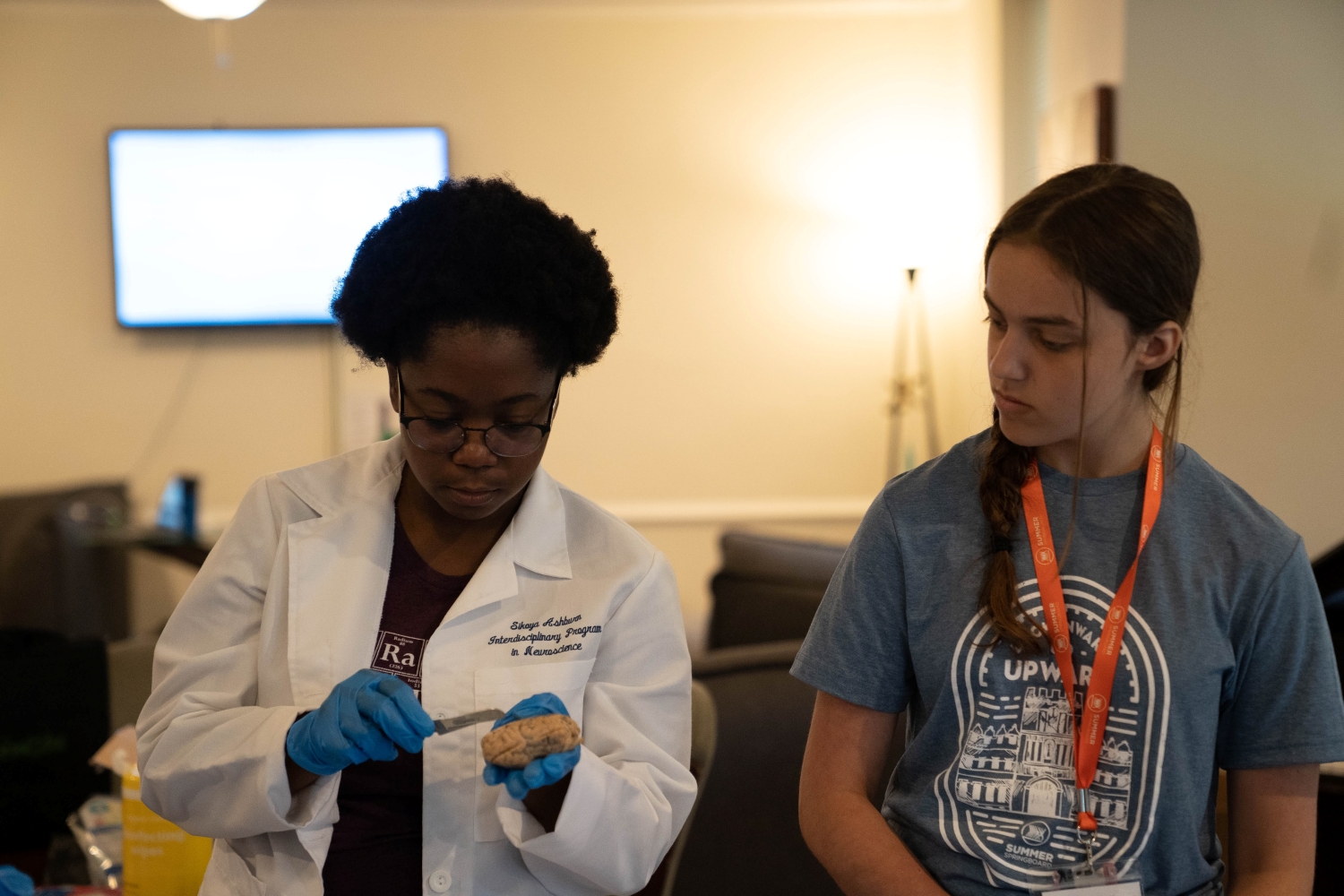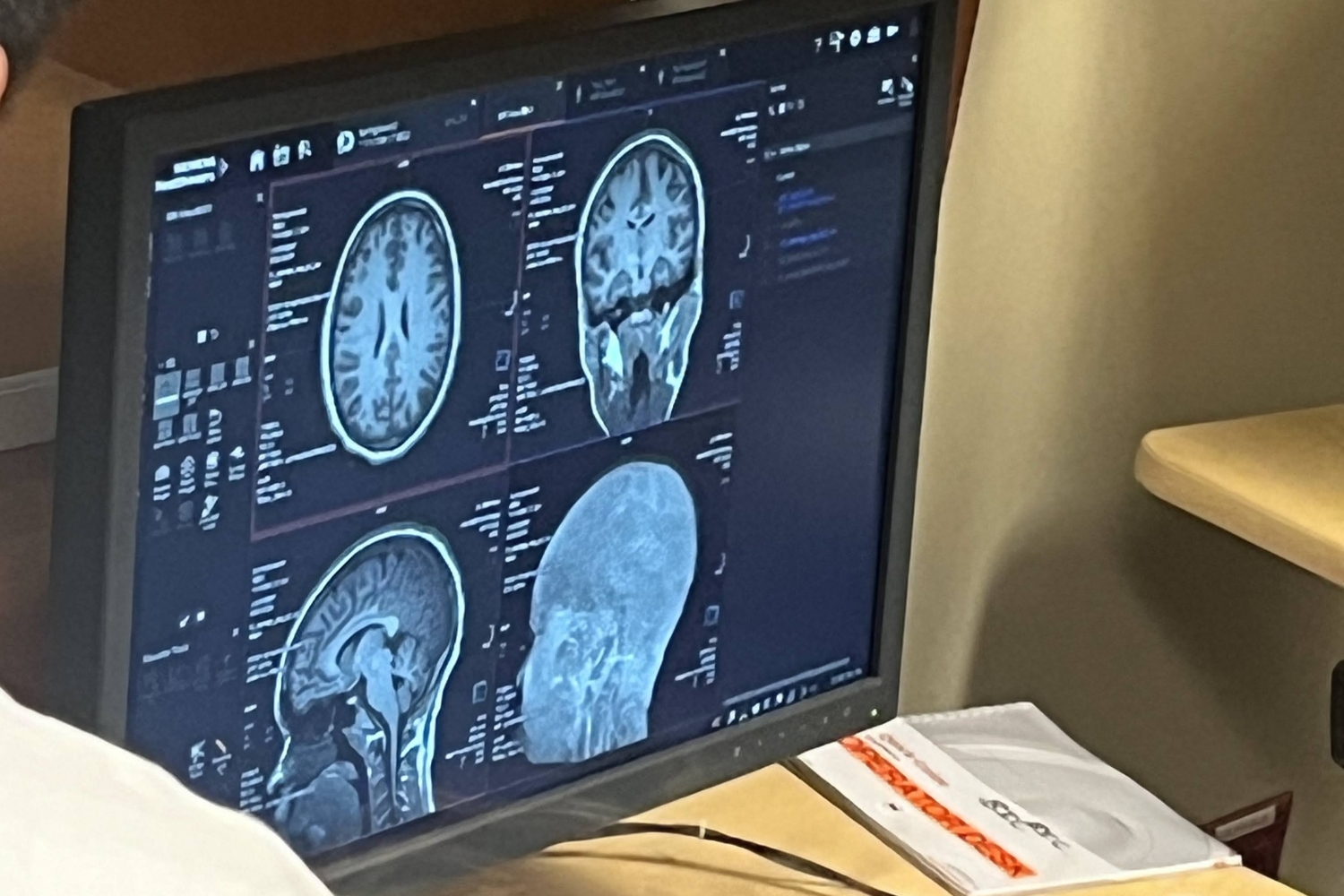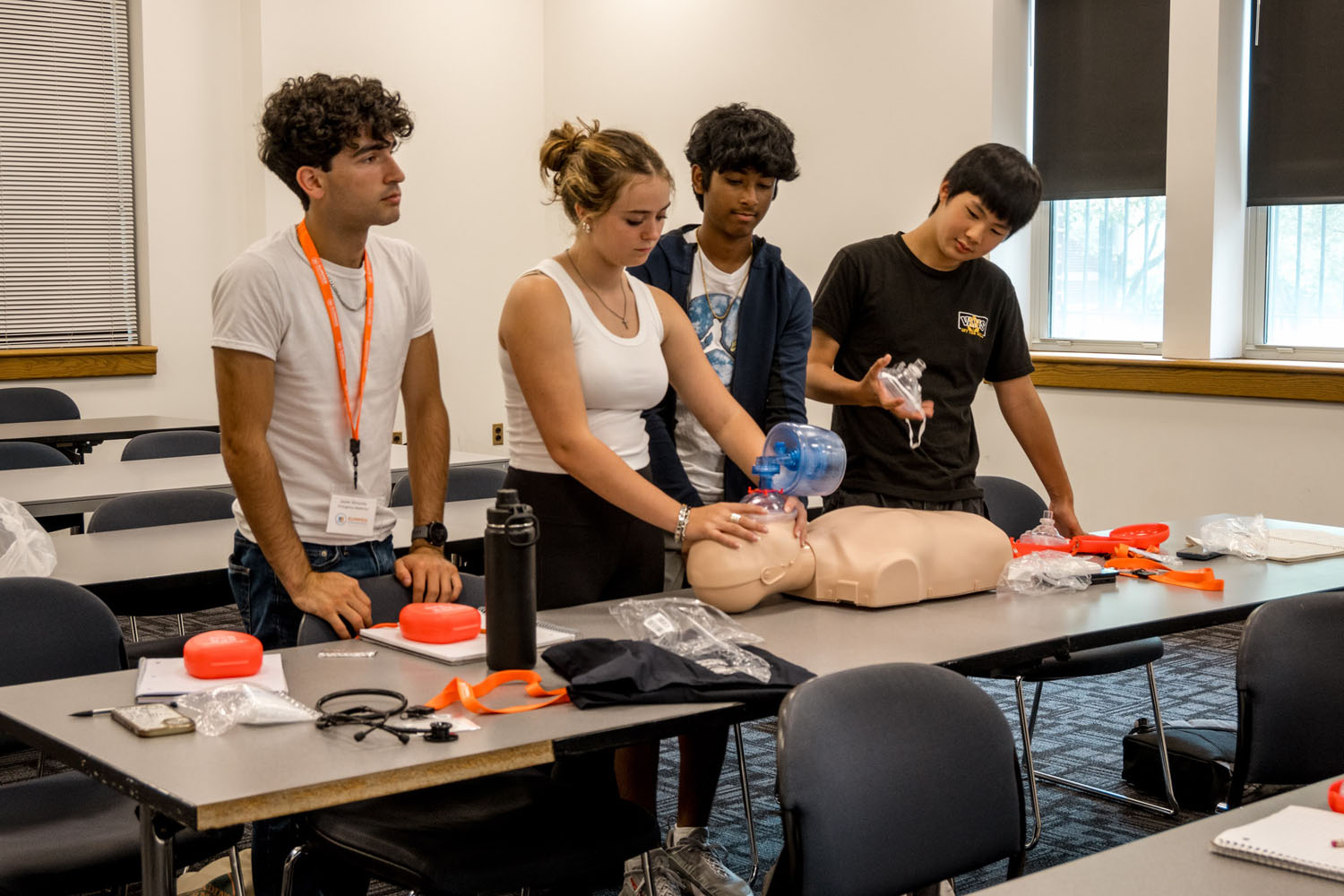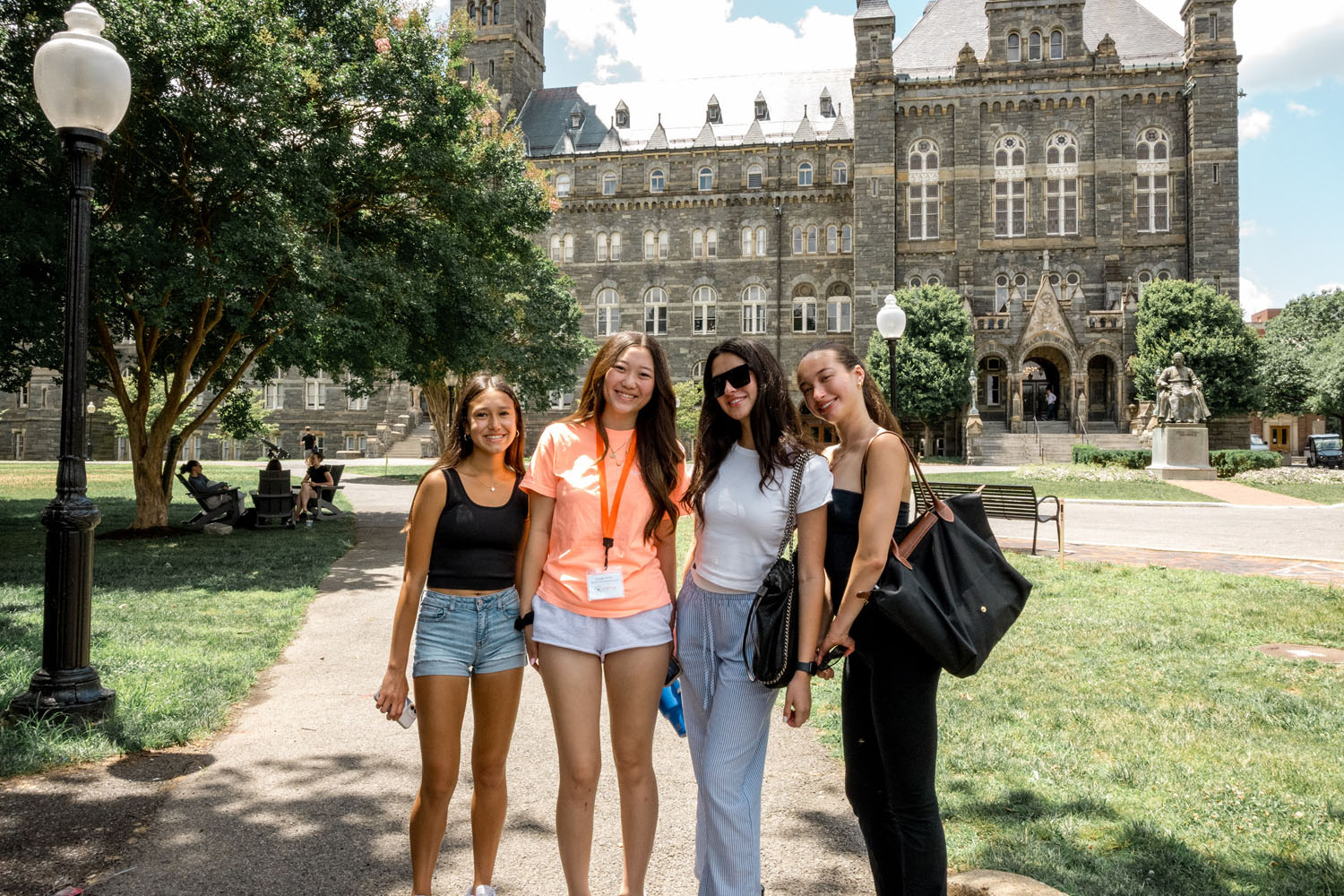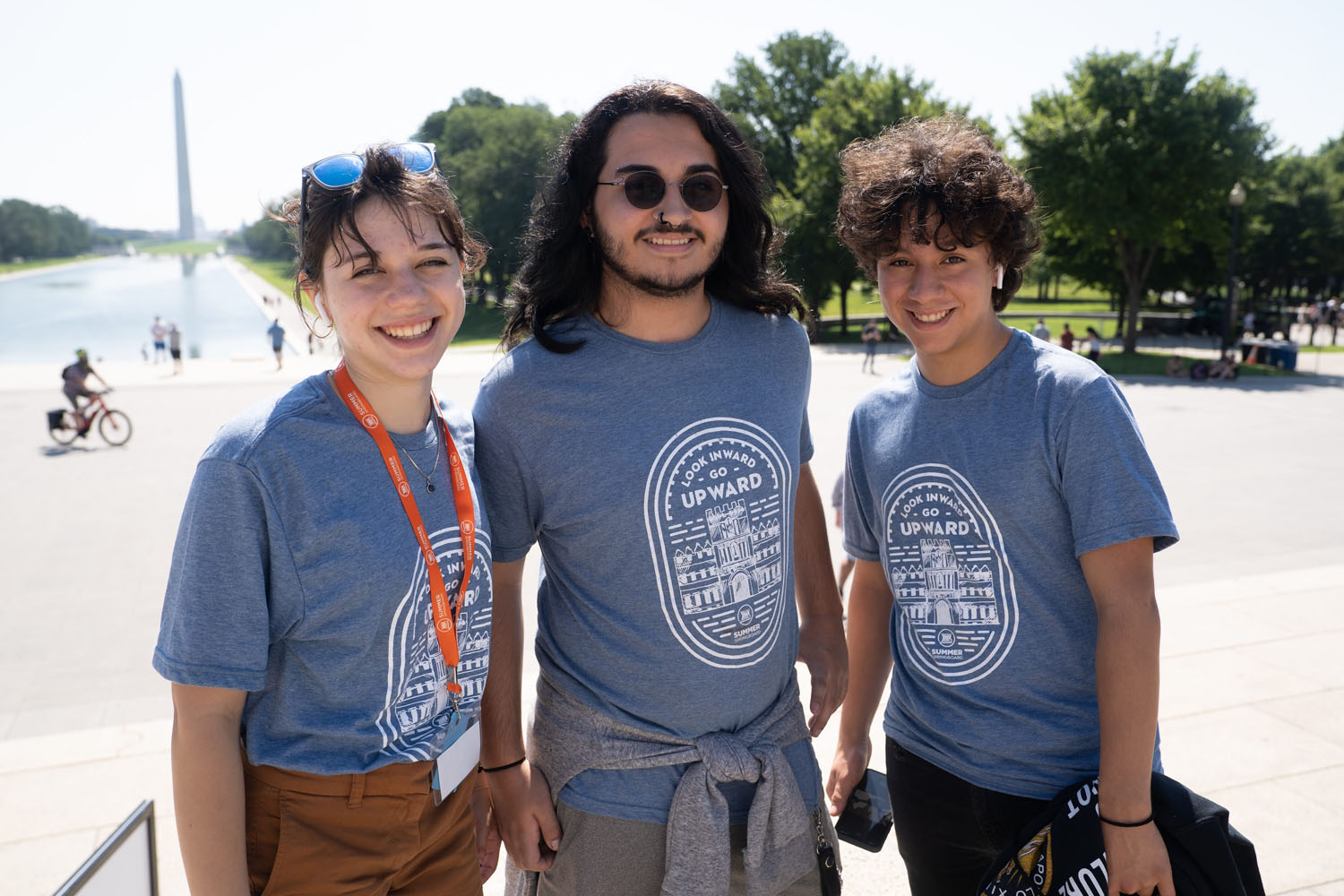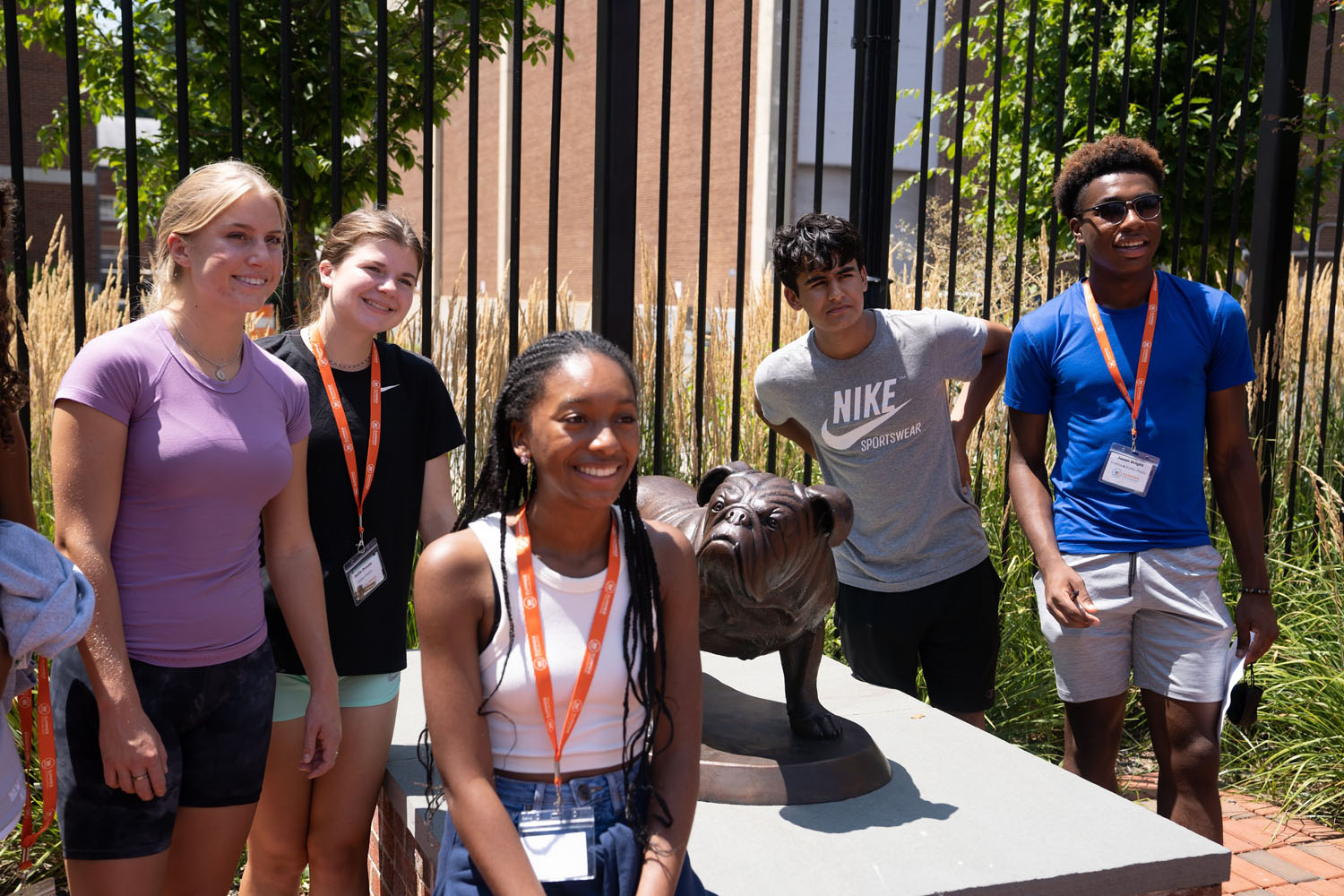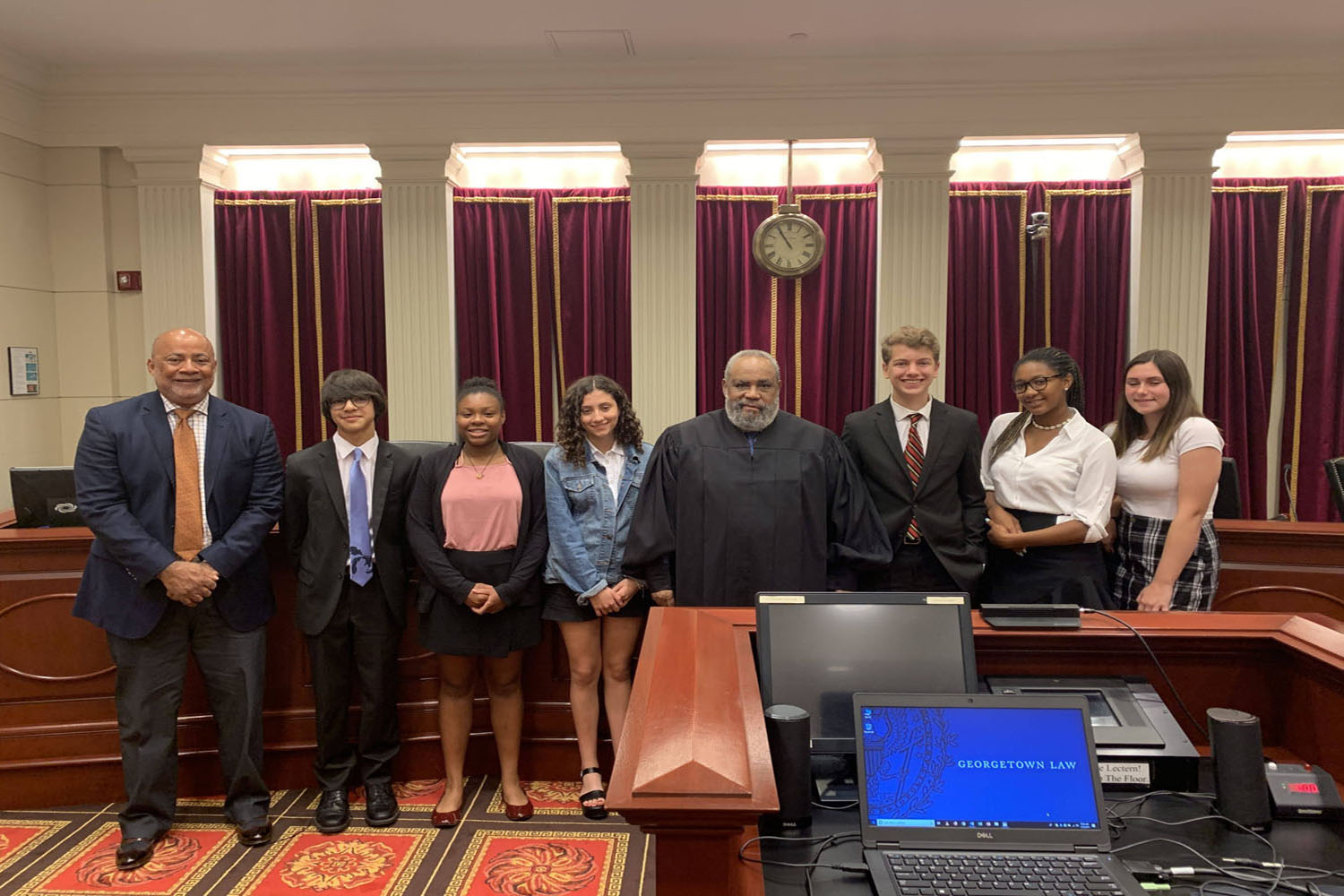Summer Springboard
Neuroscience & Behavioral Biology
ON THE CAMPUS OF GEORGETOWN UNIVERSITY
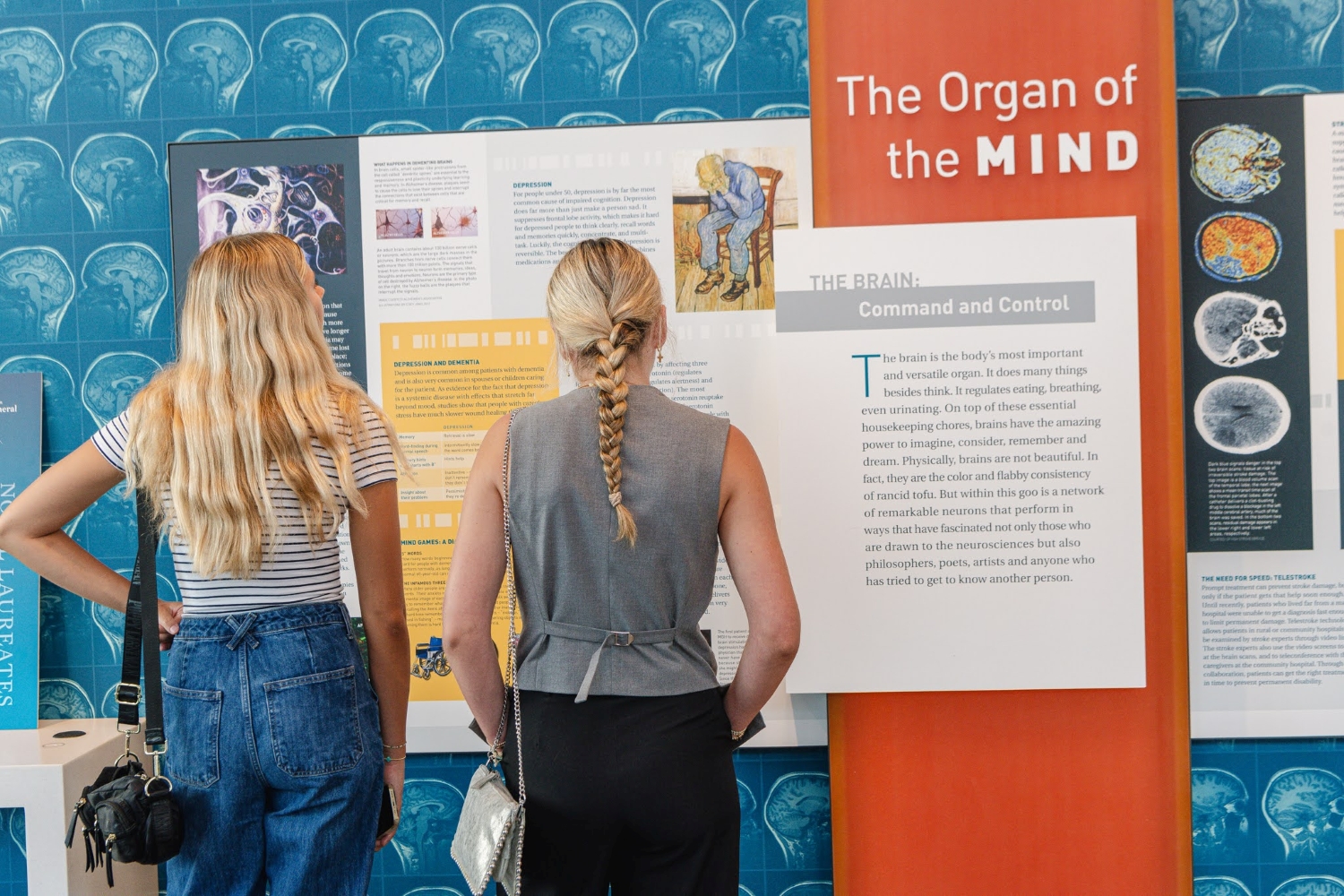
UNLOCK THE MYSTERIES OF THE BRAIN AND NERVOUS SYSTEM THROUGH THIS IMMERSIVE EXPLORATION OF NEUROBIOLOGY
THIS IS A TWO-WEEK PROGRAM WHERE YOU’LL FOCUS ON ONE COURSE FOR THE ENTIRE DURATION.
Neuroscience & Behavioral Biology @ Georgetown University
- Explore the foundations of Neurobiology through key cellular, molecular, and systems neuroscience to understand brain and nervous system function.
- Develop critical skills by analyzing and interpreting groundbreaking scientific studies.
- Learn to design and conduct neuroscience experiments with precision.
- Gain hands-on experience using the latest methods in neuroscience research.
- Investigate the relationship between brain function and behavior in health and disease.
- Participate in a visit to a local neuroscience research center and engage with professional neurobiologists.
Summer Springboard
Neuroscience & Behavioral Biology
About This Course
A neurobiology program for teens on a university campus in Washington, D.C.
This Summer Springboard course provides a comprehensive introduction to neurobiology and the interdisciplinary study of the brain and nervous system. Students will explore how the nervous system controls thought, action, and emotion by examining molecules, cells, and neural circuits that shape human behavior. Through lectures, discussions, and hands-on activities, they will gain a holistic understanding of neurobiological principles—from development to brain injury and disease—while discovering the diverse career opportunities in academic research, biotechnology, drug discovery, clinical medicine, biomedical engineering, and neuroinformatics.
Hands-on experiments expose students to a wide range of molecular, microbiological, and cell biological techniques used in modern research. They will also visit a local neuroscience center, engaging with professional neurobiologists to deepen their real-world understanding. Throughout the course, students will learn the fundamental structure and function of the mammalian nervous system, analyze brain disruptions caused by injury or disease, study neural adaptation across the lifespan, and cultivate critical thinking and analytical skills through scientific inquiry and experimentation.
TOPICS YOU'LL EXPLORE
Hands-on Learning
Hands-on learning in this course allows students to actively engage with the tools and techniques used in modern neuroscience research. Through carefully designed experiments, students gain practical experience in molecular, cellular, and microbiological methods, helping them connect theory with real-world applications. This hands-on approach not only deepens understanding but also builds essential skills in scientific inquiry and experimentation.
Career Exploration
This course offers valuable career exploration opportunities, introducing students to a wide range of professions within neurobiology. From academic research and biotechnology to clinical medicine, drug discovery, and neuroinformatics, students will learn about diverse career paths and the skills needed to succeed. Visits to local neuroscience centers and interactions with professional neurobiologists provide firsthand insight into the exciting possibilities in this rapidly growing field.
RESOURCES
Course Infosheet
Click here to view or download the printable infosheet for this course.
Program Catalog
Click here to request our catalog to learn more about our summer programs and courses.
Campus Page
Click here to view the website page for this campus and learn more.
“My experience was great.I learned so much and received clarity within the academic track I am wanting to pursue. I suggest that everyone takes this course.”
-Ava G. | Alumni Student
Summer Springboard
Neuroscience & Behavioral Biology
Meet Your Instructor
Gabriela Rosenblau is an Associate Professor in the Department of Psychological and Brain Sciences at the George Washington University (GWU). She is also affiliated with the Autism and Neurodevelopmental Disorders Institute at GWU. She is part of the Cognitive Neuroscience program and the Director of Undergraduate Studies for the Cognitive Neuroscience BS major. Her research combines computational and neuroscientific methods to understand the cognitive and neurobiological mechanisms underlying social interactions across development and clinical populations, especially Autism Spectrum Disorder. One particular focus of her research is understanding how individuals gather and access information about others through a process coined social learning. She is currently funded by the Simons Foundation for Autism Research (SFARI) and by the NIMH. Gabriela Rosenblau completed most of her academic training in Berlin, Germany. She studied Psychology and earned BS and MS equivalent degrees from the Freie University in Berlin. During her undergraduate and graduate degree programs she held a part-time research position at the Max Planck Institute for Human Development in Berlin. She then completed a PhD in Social and Affective Neuroscience at Freie University Berlin in the Cluster of Excellence “Languages of Emotion”. After earning her PhD, she accepted a postdoctoral fellowship from the Yale Medical School. She completed her postdoctoral training at the Yale Child Study Center under the mentorship of Professor Kevin Pelphrey before accepting a faculty position at George Washington University.
GABRIELA ROSENBLAU
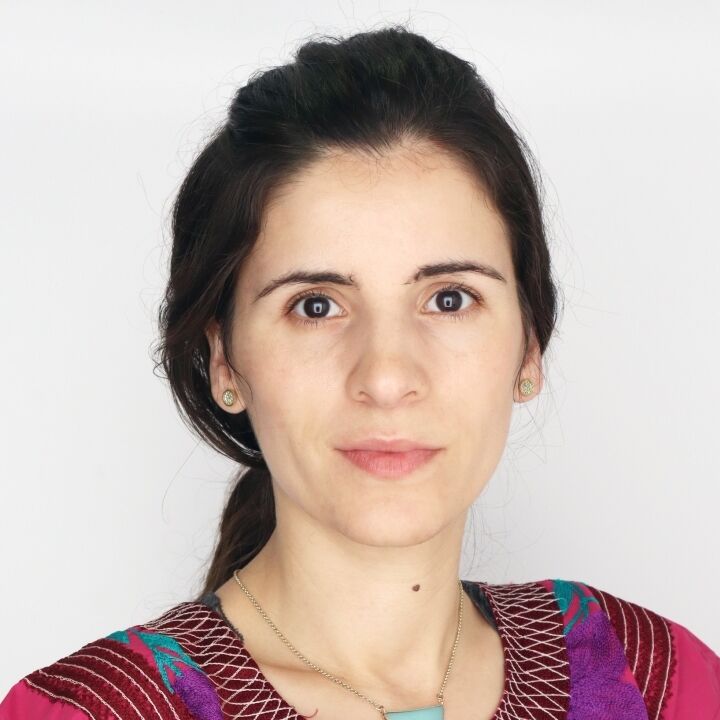
“Summer Springboard is a great place for students to connect with like-minded others who are interested in the same career path.”
-Ethan S. | Alumni Student
Summer Springboard
Neuroscience & Behavioral Biology
Dates & Tuition
| 2026 Dates |
|---|
| Session 1: June 21 – July 3, 2026 |
Click here to enroll in this course using our online enrollment form.
| Tuition |
|---|
| Residential Tuition: $5,798 |
| Commuter Tuition: $2,998 |
Tuition Protection Plan: Allows for cancellation for any reason up until the day of the program.
| Location |
|---|
| City: Georgetown Neighborhood |
| State: Washington, D.C. |
| Campus: Georgetown University |
Summer Springboard programs are not run by our campus partners (with the exception of Cal Poly and NYSID which are run in partnership with SSB). Universities and their affiliated departments and partners do not control and are not responsible or liable in any manner for any part of the Summer Springboard program.

